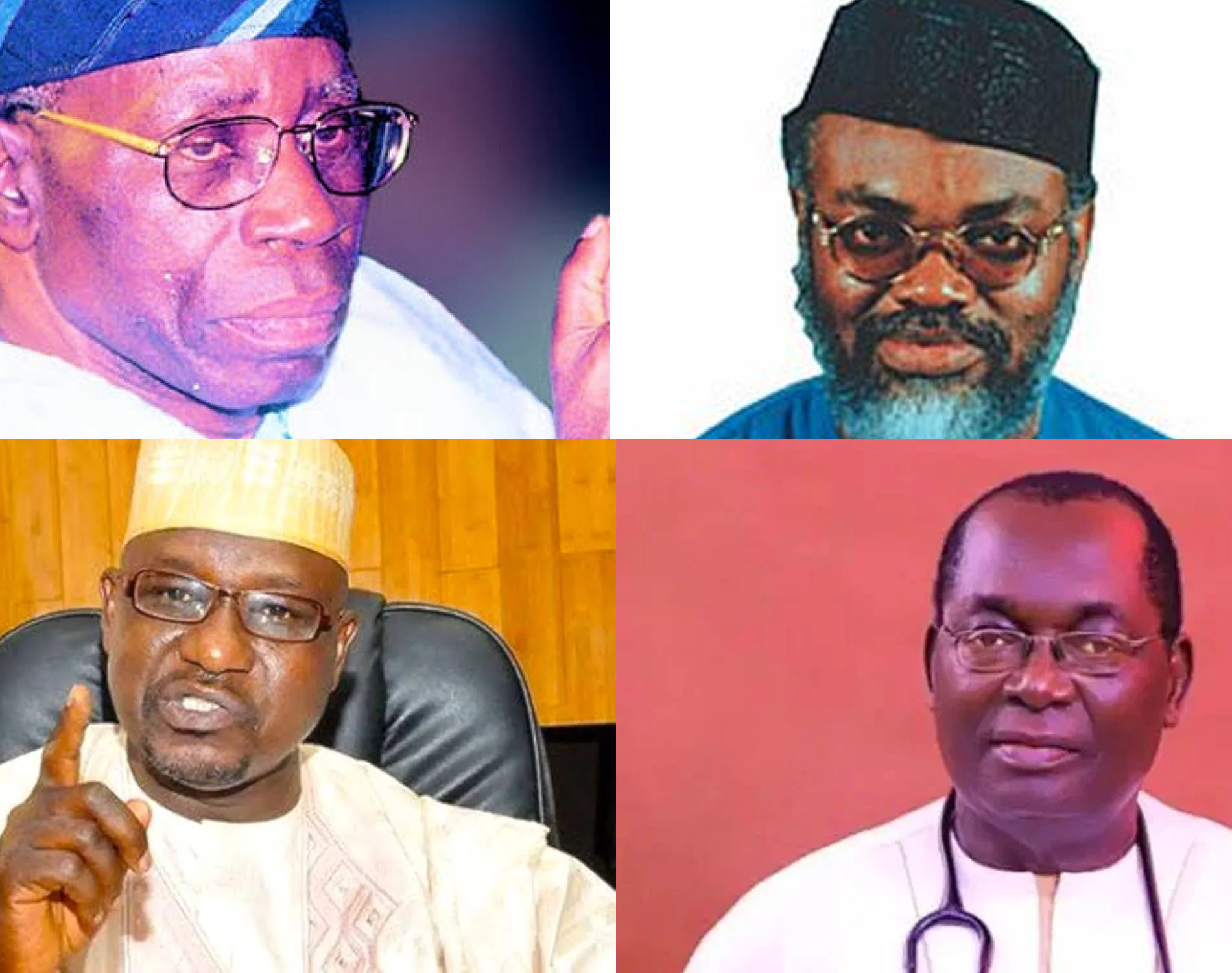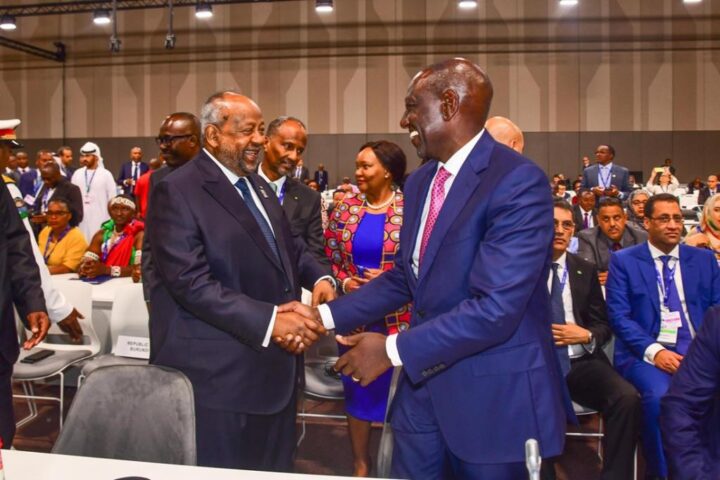Impunity, no doubt, is nourishment to killings in Nigeria.
Perhaps, Nigeria’s greatest woe isn’t the seemingly endless outrageous incidents that have become commonplace, but the absence of visible measures to combat such occurrences. In the long list of items under corruption, an old concept continually resurges: political assassinations – a term, which kind of has a nice ring to it, but whose history in Nigeria, nevertheless, reveals an astonishingly clever, yet sinister pattern. Next to it are sundry and unresolved killings of high- and low-profile Nigerians, and which often fertilize the murderous heart of future criminals. Armed robbers, bandits, farmers, herdsmen, unknown gunmen, separatist groups and the like continue to end innocent lives with such impunity that just anyone can contemplate killing another for porridge.
Join our WhatsApp ChannelFor far too long, assassinations with its varying motives, have received only as much attention as “news” requires, whereas, the pursuit of justice for its victims is very often a shabby and an obscure affair.
The murder of former Attorney General of the Federation and Minister of Justice, Chief Bola Ige, in his bedrooms in Ibadan, Oyo state, on December 24, 2001, remains one of the most notorious examples of such “unresolved murder cases” in the country.
Ige, who was also a former commissioner for Agriculture in the western region under the military governorship of General Robert Adeyinka Adebayo between 1967 to 1970, before proceeding to become the Attorney-General of the Federation, founded the Pan-Yoruba and Socio-Economic and Political organisation, Afenifere; a highly controversial narrative albeit. Till date, the murder of Ige has brought no face behind the bars, nor to a dock even. Save for a few innuendoes indicting notable state actors here and there, or merely accusing them, justice has yet to be served in the murder case of Chief Bola Ige.
Between 1999 and 2015, dozens of notable Nigerians and public office holders were murdered with little or no justice served, or anyone convicted in connection with the offence. Following reports that the Nigerian government had, in 2016, ordered the re-opening of investigations into the murder of Ige and Aminasoari Dikibo, the family of late Chief Marshall Harry, led by his eldest son Mr Sonny Marshall-Harry, demanded that the investigation be extended to his political assassination. Marshall Harry was murdered in his bedroom on March 6, 2003 in Abuja, the seat of power.
Alas, it would appear that the 2016 presidential order by Muhammadu Buhari to reopen political murder cases in Nigeria with a view to resolving them has been forgotten, even as security agencies and the Economic and Financial Crimes Commission (EFCC) continue to take on too many low-profile, even private, cases that, ordinarily, should be resolved by a focused local police. A minute silence also for Anthony Olufunsho Williams, an influential politician from Lagos State and former commissioner under Colonel Olagunsoye Oyinlola’s military government in Lagos. He was assassinated on July 27, 2006 at Ikoyi Dolphin Estate, Lagos.
But 2015 to date has equally had its significant share of assassinations.
In May 2021, an All Progressives Congress APC chieftain and former political adviser to President Goodluck Jonathan, Ahmed Gulak, was shot dead by unknown gunmen in Owerri, Imo State while returning to Abuja.
Reacting to the development at the time, Imo State Police Command, swiftly blamed the incident on the self-imposed vulnerability of the victim by moving around without a security escort – a profoundly imprudent response.
But again, what may be more tragic is that neither thorough investigations, nor lawful arrests and trials were conducted to bring perpetrators to book. A sad confirmation of the utter disregard and worthlessness of human life in the Nigerian society is the glorification of statement “If you die, you die.”
In April 2021, a graduate of Philosophy from the University of Uyo, Akwa Ibom State, Iniobong Umoren, was allegedly lured, abducted, raped and murdered on April 29, 2021 by Uduak Akpan, who acted on the pretext of offering her a job.
Outraged Nigerians took to social media to express their grief and shock over the event, which led to the creation of the popular hashtag, #justiceforiniumoren.
Those who think that a suspect was apprehended and arraigned in connection with the murder, and that justice has been served actually lack a sense of restitution. Besides, the suspect, Akpan, till date is yet to be convicted and investigations on the issue suggest a dangerous network of murderers in Uyo.
In September 2021, Dr Chike Akunyili, husband of the late Dora Akunyili, former NAFDAC chief, was gruesomely murdered by unknown gunmen in Anambra. The incident, which has been described in many occasions as a “senseless murder” has till date not attracted sufficient investigations to convict the perpetrators. Although the proscribed secessionist group, the Indigenous People of Biafra IPOB, was accused of culpability in the murder, no one has yet been charged, tried or convicted. It would also be remembered that the group has consistently denied the accusation.
Prime Business Africa believes that the overriding implication of these events is the fact that the delay in justice, or the lack thereof breeds fertile grounds for impunity. Assassins and murderers are thereby emboldened in their trade because not much has been done in the least to deter them and forestall future actions. In some parts of Nigeria, kidnapping and banditry have been glorified to the status of goldmine.
But we urge that the task ahead is not solely that of the Federal Government. Relevant law enforcement agencies must shake off the lethargy that prevents them from pursuing justice vigorously. The Judicial system should also avoid delaying justice unnecessarily. The long arm of the law should catch up with offenders, however long it takes. Our law enforcement agents must take important lessons from the swift response of security agents in western Europe once any crime is committed. Nearly every crime is resolved and every identified criminal is served justice.
One important lesson from the conviction of criminals of the pre-world II era in 2021 is that justice is important no matter who is involved and no matter how long it takes. In this wise, the finding of the letter-bomb killers Dele Giwa, founding editor of Newswatch in 1986 can still be made a major find in our time. The discovery of nearly 1000 unmarked graves in Canada in June 2021, using ground penetrating radar, did not just show that people want to follow-up on crime, it also called the attention of world leaders to the plight and wanton injustice and killing of poor and defenseless people, the type serially witnessed in remote villages around Nigeria.
The continual conviction of criminals involved in the 1994 Rwanda genocide, Srebrenica genocide of 1995 and similar events is a constant reminder that criminals should not be allowed the impunity they enjoy in Nigeria. Not all the murders around the world have been resolved. However, the scale of ongoing efforts to find eloping criminals elsewhere is in clear contrast to the sorrowful lethargy of Nigeria’s security agencies to the wanton killings from farmer-herdsmen-conflicts, kidnappings, banditry, terrorism, among others.















![Gender Activism An Economic Necessity In Africa [PBA Editorial]](https://www.primebusiness.africa/wp-content/uploads/2023/11/vaw-720x480.png)
Fact!
The one that hurts me most is that ofIniobong Umoren. The murderer was known, yet did not face the Law.
The truth has been told, I pray that God touch the hearts of both the leaders and security agencies, so that they will be punishing law offenders for that will help to reduce crime rate in the country.
A very good piece on an important subject that has been treated with kid’s gloves. Government should strive to ensure that, all cases of muder are concluded within a given time. Also, culprits must be brought to book to serve as a deterrent to future perpetrators. Obiorah I. Edogor
Profound editorial. Great and courageous work you’ve done here, my Doc and publisher. Keep doing great things.